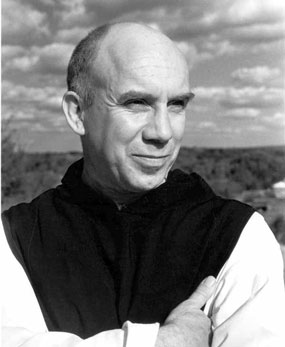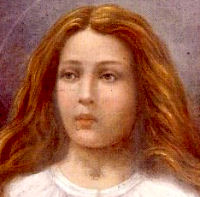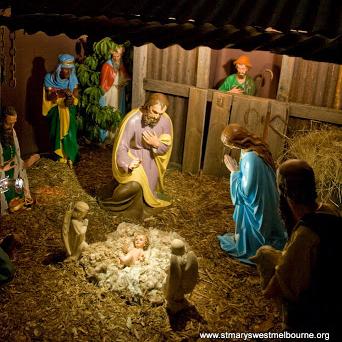Pope Benedict was — is — a teacher of great depth. I love reading his books, and his homilies. Reading Ratzinger is hard work, but always rewarding.
Pope Francis has a very different style. A very distinctive style. Reading Lumen fidei, it’s easy to distinguish Francis’ pen from Benedict’s. Consider, for example, section 57. I suspect Benedict wrote the first two paragraphs, while the third paragraph was written by Francis. The styles and content are contrasting:
57. Nor does the light of faith make us forget the sufferings of this world. How many men and women of faith have found mediators of light in those who suffer! So it was with Saint Francis of Assisi and the leper, or with Blessed Mother Teresa of Calcutta and her poor. They understood the mystery at work in them. In drawing near to the suffering, they were certainly not able to eliminate all their pain or to explain every evil. Faith is not a light which scatters all our darkness, but a lamp which guides our steps in the night and suffices for the journey. To those who suffer, God does not provide arguments which explain everything; rather, his response is that of an accompanying presence, a history of goodness which touches every story of suffering and opens up a ray of light. In Christ, God himself wishes to share this path with us and to offer us his gaze so that we might see the light within it. Christ is the one who, having endured suffering, is “the pioneer and perfecter of our faith.” (Heb 12:2)
Suffering reminds us that faith’s service to the common good is always one of hope — a hope which looks ever ahead in the knowledge that only from God, from the future which comes from the risen Jesus, can our society find solid and lasting foundations. In this sense faith is linked to hope, for even if our dwelling place here below is wasting away, we have an eternal dwelling place which God has already prepared in Christ, in his body. (cf. 2 Cor 4:16-5:5) The dynamic of faith, hope and charity (cf. 1 Th 1:3; 1 Cor 13:13) thus leads us to embrace the concerns of all men and women on our journey towards that city “whose architect and builder is God,” (Heb 11:10) for “hope does not disappoint.” (Rom 5:5)
In union with faith and charity, hope propels us towards a sure future, set against a different horizon with regard to the illusory enticements of the idols of this world yet granting new momentum and strength to our daily lives. Let us refuse to be robbed of hope, or to allow our hope to be dimmed by facile answers and solutions which block our progress, “fragmenting” time and changing it into space. Time is always much greater than space. Space hardens processes, whereas time propels towards the future and encourages us to go forward in hope.
Speaking personally, I don’t think Francis’ writing is as elegant nor as compelling as Benedict’s. But boy can he preach! I’ve said before that John Paul II was the television pope, Benedict was the Internet pope, and Francis is the Twitter pope.
Francis excels at memorable turns of phrase which are ideally suited to Twitter. But of course their natural home is in the preached word. Francis not only keeps his listeners’ attention, but he also makes points which listeners will recall and (hopefully) interiorise well after he has finished speaking.
Observe this address to seminarians and novices, which I think resonates very deeply:
Genius.






I think Pope Francis has more of a style closer to St. Peter and Paul, a man more described as one who preaches through oral tradition. Pope Benedict is an intellect, a man of deep thought reflection, a theologion who compliments those who can preach directly to People. Both great men in their own way.
Interesting! If we were to use Peter and Paul as comparisons, I’d say that Francis is to Peter as Benedict is to Paul. (Paul has been described as the Church’s first theologian, such are the layered depths of his letters.)
Mind you, we should be wary of caricaturing Francis an intellectual lightweight. He has, after all, worked as a professor of theology!
Ah so true!
I lhink that Benedict is more of a Paul as you say!
Both great men of God!
Pope Francis seems to be at his best when unscripted. He interacts very closely with his audience. In a sense he seems to discern whether they are with him, then he surprises them and delights them. You can see it among these seminarians and religious.
I believe that if the world is to be brought back to Christ, this is the pope who will do it. His love of radical poverty, if emulated by priests and bishops, could lead to a new chastity which would change the world — led by the Star of the Sea, of course!
Well, that’s what I hope for.
Stephen Hawking talking about time and space made more sense to me than that last paragraph.
I find Pope Francis’ words very uneven in quality on various occasions.At Easter, preaching on the women coming to the tomb I found his words exciting and insightful. But much else – as for example the third para above – I find to be little more than hasty, repetitive exhortation.
It is the stuff of the casual preacher,concerned more with his personal action in the immediate circumstance than the significance of his words for the universal Church. It is one with the “off the cuff” remarks, and the smart barbs directed at people whose vehicles do not meet Francis’ measure.
It must be very difficult for anyone suddenly propelled into Saint Peter’s Throne to find the humility to give up doing his own thing and take up the Cross which the Petrine Ministry truly is.
It is certainly a novelty for Catholics to encounter an ” I gotta be me” Pope.But one can see what a 100% Francis Encyclical might look like -that much is certain.
It is unthinkable to me that I would have written in this vein about any previous Pope, but there was no reason to do so.
I always had the impression, Pope Benedict was clear what he was talking about. Unfortunately, at the Mass for Evangelium vitae Day, Pope Francis gave the impression he had little idea what the encyclical was about.
With the release of Pope Francis’ masterful text – the work of “four hands,” we truly see how Chesterton’s words about another Francis come alive in our day: ‘What Benedict stored, Francis scatters.’” Many people have delighted in pointing out all the areas of seeming disconnect or discontinuity between the two popes. “Lumen Fidei” puts those furtive attempts to rest. We cannot forget that more than any of the recent choices made by Francis of Argentina, it was Benedict XVI’s resignation that represented the greatest change of the papal office. Benedict’s decision does not in any way undermine the papacy. Benedict is the great theologian and teacher. Francis is “pontifex,” a bridgebuilder: a man of theology and a man of deep pastoral intelligence.
Well said, Sergio! I maintain that those who love the holy father can clearly see his gifts to benefit the Church and the world and God’s providence in situating this pope at this particular time in the history of the Mystical Body.
It makes me very uneasy and sad to see criticism of the pope. Any pope.
After reading the three paragraph excerpt from the Lumen Fidei, one can easily discern Pope Benedict wrote the first two paragraphs because he keeps mentioning God and Christ. Pope Francis wrote the 3rd paragraph because there is no mention of God at all, but some kind of Telhard D’Chardin mumble jumble about time and space. Personally I didn’t get what paragraph 3 was all about except that it was some reference to the future which clearly doesn’t have any thing to do with God, just what the individual does with having a positive attitude and not wasting his time because it might turn into space??? I guess I don’t know enough about the New Age mindset, to understand what Pope Francis was saying. Telhard d’Chardin was also a Jesuit. Father Malachi Martin, wrote in his book, The Jesuits, about the spread of Telhard d’Chardin New Age religion in the guise of Catholicism throughout the Jesuits’ African and Asian missions. Chardin is considered the father of the New Age Movement. Pope Benedict clearly didn’t write this bunch of nonsense in paragraph 3.